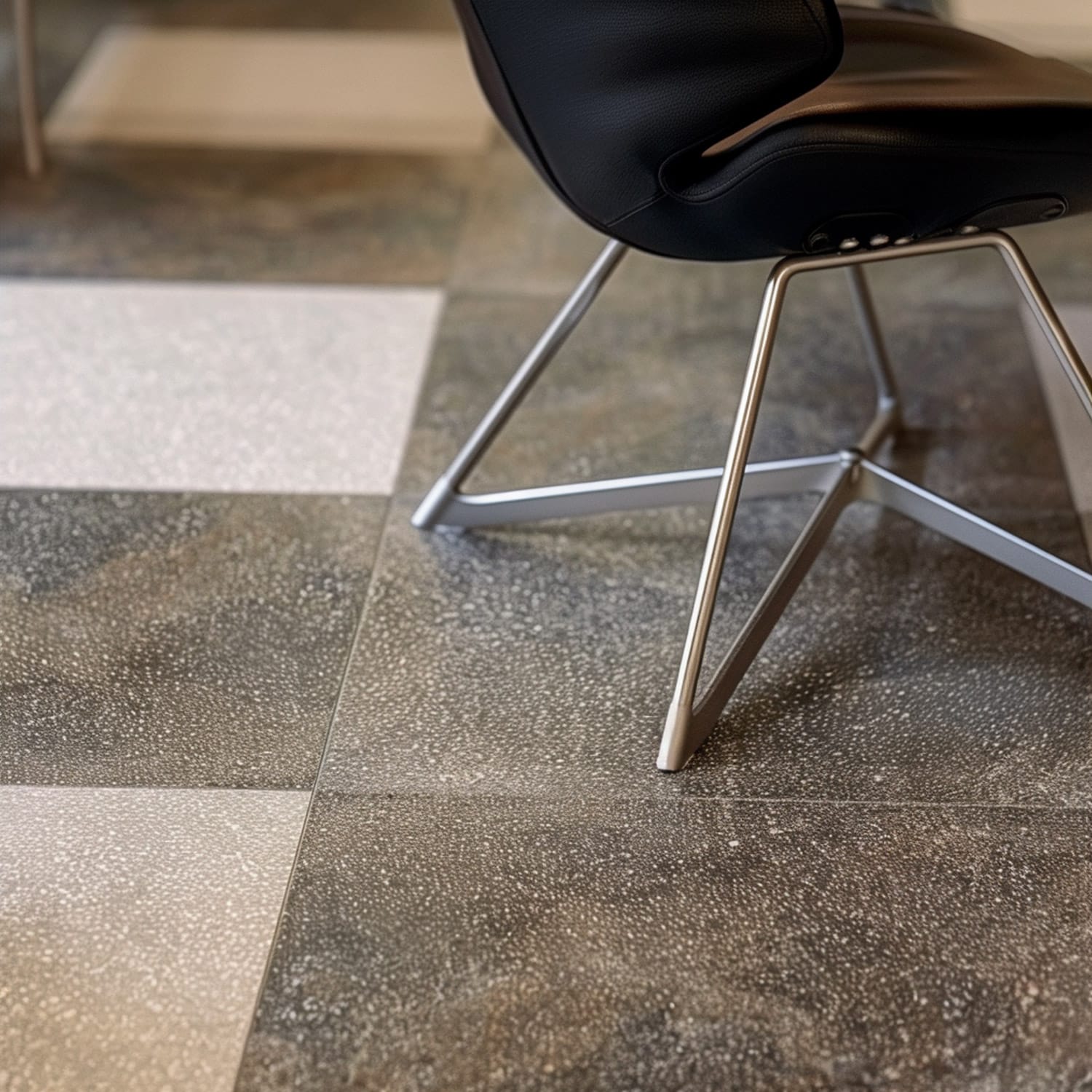Vinyl Composite Tile
Product: VCT

Resilient Flooring
Vinyl composition tile (VCT) is a finished flooring material used very widely in both residential and commercial buildings from the early 1950s into the early 1980s.
Modern vinyl floor tiles and sheet flooring and versions of those products sold since the early 1980s are composed of colored polyvinyl chloride (PVC) chips formed into solid sheets of varying thicknesses (1/8″ is most common) by heat and pressure. Floor tiles are cut into modular shapes such 12″ x 12″ squares or 12″ x 24″ rectangles. In installation the floor tiles or sheet flooring are applied to a smooth, leveled sub-floor using a specially formulated vinyl adhesive or tile mastic that remains pliable. In commercial applications some tiles are typically waxed and buffed using special materials and equipment.
Modern vinyl floor tile is frequently chosen for high-traffic areas because of its low cost, durability, and ease of maintenance. Vinyl tiles have high resilience to abrasion and impact damage and can be repeatedly refinished with chemical strippers and mechanical buffing equipment. If properly installed, tiles can be easily removed and replaced when damaged. Tiles are available in a variety of colors from several major flooring manufacturers. Some manufacturers have created vinyl tiles that very closely resemble wood, stone, terrazzo, and concrete and literally hundreds of varying patterns.
Vinyl composition tiles (that do not contain asbestos) took the place of vinyl asbestos and asphalt asbestos floor tiles, which were widely used in all types of buildings into the early 1980s. Use of tiles, sheet flooring and adhesives containing asbestos were discontinued when asbestos materials were determined to be hazardous.